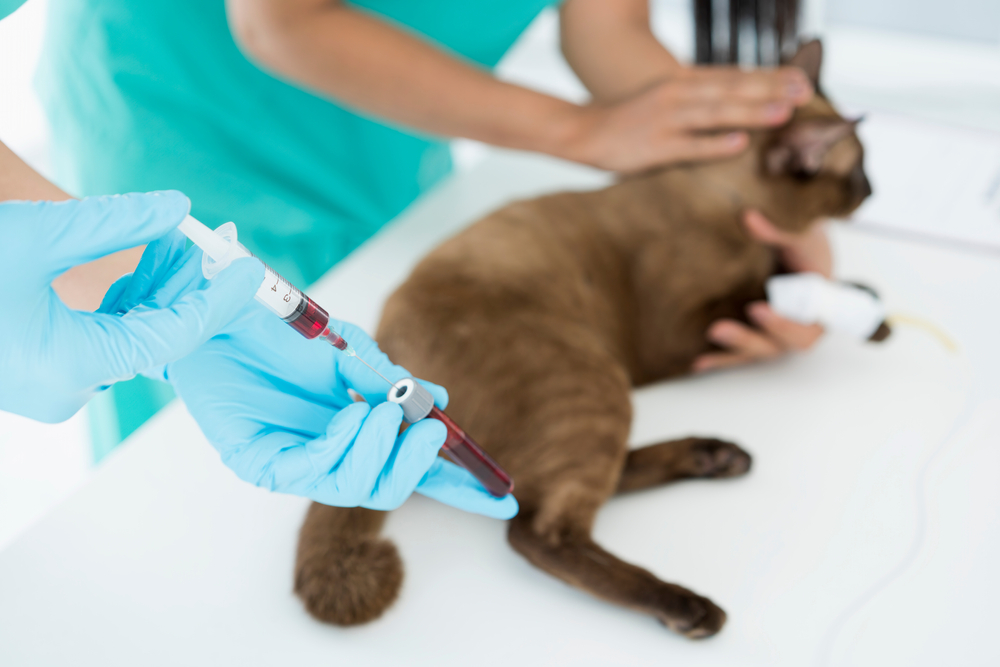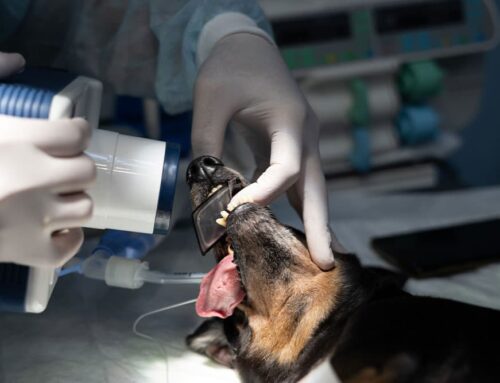While you know your pet’s annual wellness visit is important for maintaining their health, regular screening tests are essential for detecting disease in its earliest stage. Through early detection, your veterinarian may be able to manage or treat your pet’s health issues before they cause serious, irreversible damage. Our South Shores Pet Clinic team describes the importance of your pet’s regular screening tests by sharing two wellness visit stories during which our veterinary professionals detected pets’ health conditions before they became advanced.
A dog’s parasite screening results
Chester is a 5-year-old yellow Labrador who enjoys eating everything in sight, despite being long past the puppy stage. During walks, his owners had a challenging job preventing Chester from ingesting inedible objects, including sticks, rocks, and other animals’ feces. However, the one thing Chester would not eat was his monthly heartworm preventive. Each month, his owners attempted to wrestle open his jaws of steel to pop in the medication, only to have Chester shoot the tablet out of his mouth with his long tongue. In most cases, his owners resorted to wrapping the tablet in layers of Chester’s favorite foods—a cheese, salami, peanut butter, and liverwurst combination—which usually did the trick.
Eventually, Chester figured out how to get rid of that suspicious morsel in his monthly treat by eating the yummy food from around the medicine, and leaving the tablet behind the couch. Unfortunately for Chester, he did not receive his heartworm prevention for the better part of a year.
At Chester’s annual wellness exam, his veterinarian administered vaccinations essential for his lifestyle. In addition, Chester’s veterinarian recommended a heartworm test and a fecal exam. Although Chester appeared perfectly healthy, his owners agreed to having his veterinarian run these standard screening tests, which detect hidden illness and disease. Chester’s owners were confident the results would be negative, because they believed Chester had been swallowing his heartworm prevention each month.
However, Chester’s sly tricks made him vulnerable to heartworm disease and intestinal parasites. A surprise to his owners, Chester’s positive test results indicated he had heartworm disease and a roundworm infection. Fortunately, Chester’s diseases were in the early stages, and he was showing no illness signs. Heartworm disease can take months or years to cause obvious illness signs, all the while causing serious internal damage. Roundworms must develop a large parasite load before a pet shows signs. If Chester’s owners had declined his veterinarian’s recommended screening tests, they would have had no way of knowing their pooch had parasites—until his illness became advanced.
Fortunately, Chester’s veterinarian diagnosed both these diseases early through regular wellness screening tests, and they treated the conditions promptly. To overcome Chester’s issues with taking his monthly heartworm preventive, his veterinarian recommended that his owners switch him to a topical or injectable product—no tablet swallowing necessary—to keep him safe.
A cat’s blood chemistry panel results

Despite her spry behavior when playing with her kitten housemate, Gertrude was entering her senior years, and her wellness visits had become more comprehensive than when she was a young adult cat. Although longevity is not a disease, senior pets’ risk for adverse health conditions increase as they age. Older cats, in particular, are prone to developing chronic renal failure.
During Gertrude’s biannual senior wellness visit, her veterinarian administered vaccinations, and performed a physical exam. Gertrude’s physical exam was normal, and her owners reported no concerning issues. However, Gertrude’s blood work results—which included a complete blood count (CBC), chemistry panel, and symmetric dimethylarginine (SDMA) test—revealed an abnormality. While Gertrude’s CBC and chemistry panel were normal, the SDMA test, which evaluates kidney function loss much earlier than a chemistry panel—showed an increase. Because Gertrude’s SDMA test results were abnormal, her veterinarian knew that her kidneys had lost at least 40% of their filtering ability. Had Gertrude only had a blood chemistry panel, her kidney dysfunction would have been detected only after her kidneys had lost 75% of their filtering ability.
By performing both a chemistry panel and SDMA test, Gertrude’s veterinarian detected her declining kidney function much earlier than by running a chemistry panel alone, or by waiting until she had illness signs. Early kidney disease diagnosis can provide cats with months or years more time, verus the rapid decline typically seen with end-stage diagnosis. Because her veterinarian became aware that Gertrude’s kidney function was beginning to decline, they made appropriate diet and supplement recommendations, and regularly monitored her kidney function to help support her kidney health.
Through wellness screening tests tailored to your pet’s age, lifestyle, and health status, your veterinarian can detect whether your pet has any common adverse health conditions before they can cause serious health problems.
Regular wellness screening tests are essential to maintain your pet’s good health. Contact our South Shores Pet Clinic team to schedule your pet’s annual wellness visit, which includes a physical exam, vaccinations, and wellness screening tests.







Leave A Comment